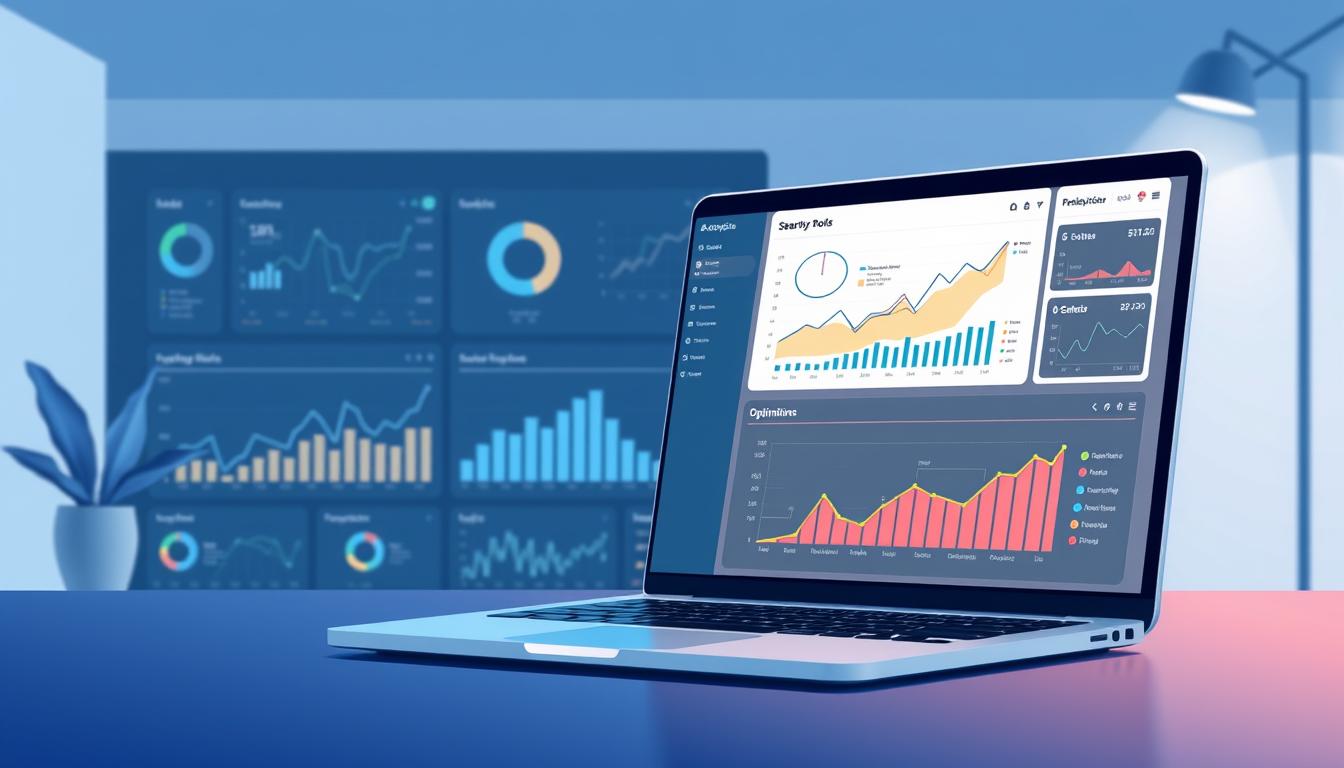In the ever-evolving world of digital marketing, SEO analytics and reporting have become essential for businesses looking to improve their search rankings, website traffic, and overall online performance. The ability to track, analyze, and optimize SEO efforts allows companies to make data-driven decisions that contribute to sustained growth. However, many businesses struggle to effectively utilize SEO reporting tools, interpret data accurately, and adjust strategies based on insights. Without a structured SEO analytics and reporting framework, even the most well-executed SEO campaigns can fall short of their full potential.
The rise of AI-driven search algorithms, voice search, mobile indexing, and user intent-based ranking factors has made SEO more complex than ever. Google and other search engines prioritize quality content, fast-loading websites, and exceptional user experience, making it crucial for businesses to constantly monitor their SEO performance. Tracking key metrics such as organic traffic, keyword rankings, conversion rates, and backlink profiles provides valuable insights into what is working and what needs improvement.
For businesses aiming to increase visibility and generate more leads, having a well-structured SEO analytics and reporting process is no longer optional—it’s a necessity. Companies like WiFi Digital, a leader in SEO and digital strategy, specialize in advanced analytics and reporting methodologies that provide actionable insights, allowing businesses to refine their strategies and achieve long-term success.
This guide will explore best practices in SEO analytics and reporting, helping businesses gain a competitive edge by making informed decisions based on accurate data. From understanding key metrics to leveraging Google Analytics, Google Search Console, and third-party SEO tools, this comprehensive guide covers everything needed to master SEO performance tracking and reporting.
The Role of SEO Analytics in Business Growth
SEO analytics is more than just tracking rankings—it’s about understanding how users interact with a website, how search engines evaluate it, and how improvements can be made to increase conversions. Data-driven SEO helps businesses identify what’s working, where they are losing potential customers, and what changes can drive sustainable traffic growth.
One of the biggest challenges businesses face is data overload. With numerous analytics tools providing a vast amount of data, it’s easy to get lost in unstructured reports, vanity metrics, and fluctuating numbers. The key is knowing which SEO metrics truly matter and how to interpret them in a way that drives meaningful action.
Organic search traffic is one of the most important indicators of SEO success. If a website consistently attracts new visitors from search engines, it’s a sign that the content is ranking well, relevant to user intent, and optimized for high visibility. However, monitoring just traffic numbers isn’t enough—engagement metrics like bounce rate, average session duration, and conversion rates must be analyzed to determine whether that traffic is actually valuable.
Keyword rankings also play a crucial role in SEO performance tracking. However, focusing solely on rankings can be misleading, as search algorithms continuously evolve. Businesses must go beyond rank tracking and evaluate how well their content aligns with user intent, search trends, and featured snippets. Additionally, tracking local SEO performance, mobile vs. desktop rankings, and search query variations provides deeper insights into how users discover content and engage with it.
One of the most critical but often overlooked aspects of SEO analytics is technical SEO performance. Core Web Vitals, site speed, mobile-friendliness, crawl errors, and structured data implementation all impact search rankings. Tools like Google Search Console and PageSpeed Insights provide in-depth reports on a site’s technical health, allowing businesses to fix potential issues before they impact rankings.
At WiFi Digital, we help businesses navigate SEO analytics with precision, ensuring they track the right data, eliminate noise, and make informed, strategic decisions to drive growth.
Key Metrics to Track for SEO Success
SEO reporting should focus on key performance indicators (KPIs) that align with business goals and digital marketing objectives. While there are countless SEO metrics available, the most critical ones provide insights into visibility, engagement, and conversions.
Organic Traffic & Search Visibility
Tracking organic search traffic is the foundation of SEO analytics. Google Analytics helps measure how much non-paid search traffic a website receives and where it’s coming from. Businesses should analyze:
- Total organic traffic growth over time
- Traffic by landing page (which pages attract the most organic visitors)
- Traffic by device (mobile vs. desktop)
- Geographical data to understand where users are searching from
Keyword Rankings & Search Intent Alignment
Ranking for high-value keywords is crucial, but businesses must also evaluate:
- Which keywords are driving the most traffic
- Changes in ranking position over time
- Search intent variations (informational, navigational, transactional)
- Featured snippets & People Also Ask (PAA) performance
Bounce Rate & User Engagement Metrics
High traffic is meaningless if users leave quickly. Bounce rate, time on page, and pages per session indicate how engaging content is. A high bounce rate may suggest irrelevant content, slow loading times, or poor user experience.
Conversion Rates & Goal Completion
SEO is not just about ranking—it’s about driving business results. Tracking conversions from organic search, whether it’s lead form submissions, purchases, or downloads, helps measure ROI. Setting up goal tracking in Google Analytics allows businesses to analyze conversion pathways and customer behavior.
Backlink Profile & Domain Authority
High-quality backlinks remain a crucial ranking factor. Businesses should monitor:
- Number of referring domains
- Quality and authority of backlinks
- Anchor text distribution
- Lost or broken backlinks that need fixing
By tracking these KPIs, businesses can refine their SEO strategy to focus on what truly impacts visibility, engagement, and growth. WiFi Digital helps businesses implement customized SEO analytics frameworks, ensuring data is actionable and aligned with business objectives.
Best Practices for SEO Reporting
Effective SEO reporting is about more than just presenting numbers—it’s about telling a story with data, identifying patterns, and making strategic recommendations. Well-structured reports should be clear, visual, and focused on actionable insights.
Use Visual Dashboards for Clarity
Complex data is easier to understand when presented visually. Tools like Google Data Studio, SEMrush, and Ahrefs allow businesses to create interactive dashboards with:
- Traffic trends over time
- Keyword ranking progress
- Backlink acquisition insights
- User behavior analysis
Segment Data for Deeper Insights
Rather than looking at data as a whole, businesses should segment reports based on:
- Traffic sources (organic, paid, direct, referral)
- Location-based search performance
- Desktop vs. mobile user behavior
- New vs. returning visitors
Identify Trends and Patterns
SEO isn’t static. By analyzing data over time, businesses can spot:
- Seasonal search trends
- Content topics that gain traction
- User behavior shifts post-algorithm updates
Set Benchmarks and Compare Performance
Comparing SEO metrics to industry benchmarks and past performance helps measure progress and identify opportunities for growth. Businesses should establish clear KPIs and track whether they are meeting or exceeding expectations.
Provide Actionable Recommendations
SEO reports should go beyond data presentation—they should include clear, actionable recommendations. If traffic dropped, why did it happen, and what steps should be taken? If engagement increased, how can this success be replicated across other pages?
By implementing structured SEO reporting methodologies, WiFi Digital helps businesses translate raw data into actionable SEO strategies, ensuring constant growth and improved rankings.
SEO analytics and reporting are no longer just about tracking numbers—they are about making data-driven decisions that shape business success. By focusing on the right KPIs, leveraging advanced tools, and presenting data effectively, businesses can refine their SEO strategy, improve search rankings, and achieve long-term growth.
With WiFi Digital’s expertise in SEO analytics and reporting, businesses gain customized insights and strategic recommendations that drive measurable results.
WiFi Digital: Connecting Businesses to the Digital Future
In today’s fast-paced world, where a strong digital presence is essential for business growth, WiFi Digital emerges as a strategic partner for small and medium-sized businesses (SMBs). Founded in 2023 and based in London, Ontario, the company has a clear mission: to provide affordable, high-quality solutions that help businesses thrive online. With an experienced and passionate team, WiFi Digital goes beyond simply creating websites and marketing strategies. Its purpose is to empower entrepreneurs, strengthen brands, and give clients more free time to focus on what truly matters – growing their business and improving their quality of life.
WiFi Digital develops websites that authentically and professionally represent your brand, optimizes systems and digital marketing strategies to enhance visibility and return on investment (ROI), and offers affordable, customized solutions, ensuring that businesses of all sizes have access to effective growth tools. With transparency, partnership, and innovation, the company provides each client with the necessary support to achieve real results.
Business digitalization is not just about numbers or metrics. It directly impacts entrepreneurs’ well-being, bringing more organization, efficiency, and freedom to focus on what truly matters. WiFi Digital understands that by investing in digital solutions, businesses gain time, reduce operational stress, and create opportunities to connect better with their customers. A well-structured online presence not only increases sales but also strengthens the public’s trust in the brand.
Beyond technical expertise, WiFi Digital’s key differentiator is its commitment to people. The company values genuine relationships, creates tailored strategies, and works side by side with clients to ensure that every solution meets their specific needs. If you’re looking to boost your brand, attract more customers, and still have more time to focus on what truly matters, now is the time to act!
💡 Transform your digital presence with experts who understand your needs.
📩 Contact us now: contact@wifidigital.ca
🌍 Learn more: www.wifidigital.ca
🚀 Your growth starts here!



